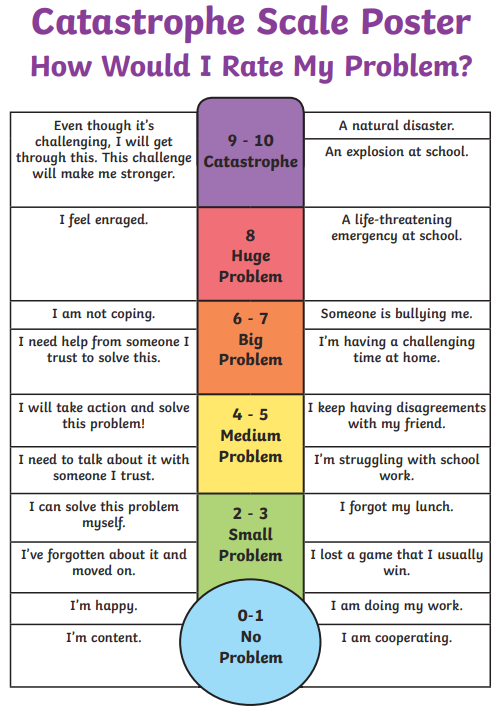In the past month, across our country and across the world, we have seen millions of people experiencing terrible catastrophes in their lives – from the invasion of Ukraine to the floods in Northern New South Wales. Unfortunately, I feel that these catastrophes are happening more frequently and with increasing severity and devastating impact. However, in the face of each of these devastating catastrophes, we are also witnessing incredible examples of individual and community bravery, perseverance and resilience.
I look at the way that many people in the midst of these true catastrophes are managing to survive with utmost admiration and am inspired by them. Thinking about our own community in comparison, I wonder how many of us would cope in the same situation and more importantly how would our children cope.
To be very honest with you, I worry about how our children would cope in a time of true catastrophe. Each day, I witness students who can’t seem to cope with getting a demerit because they have done the wrong thing, they fall apart when they are asked to have a haircut, they have an assessment to complete and their stress levels are so high that they can’t function as they normally would, or they fall apart when they receive an assessment result or some feedback they are not happy with. Regularly, I am surprised by the overreaction by students and parents to daily challenges and the way that we quickly catastrophise an everyday event, situation or mishap.
As I have communicated previously, I believe that one of the greatest gifts we can give our children is the gift of perspective, and with this comes resilience. Perspective is a skill which needs to be taught, learned and practiced. Even with many years of practice, for many adults, putting things into perspective is not always easy and doesn’t come naturally.
Over many years as an educator, one of the tools which I have used successfully with students to teach them about perspective is a catastrophe scale, and I often use this for myself when I feel that I am not coping with a situation.
I first came across the concept of a catastrophe scale many years ago when I was using a program called “You Can Do It” and I have used this concept of the catastrophe scale ever since.
In essence, the way the catastrophe scale works is that when someone is upset or concerned about something, I ask the person on a scale of 1 to 10 “where do you think you are at the moment?”. If they say they are on a 10, I would ask a few questions
- Has anyone died? No, well then we can move down to a nine
- Is anyone about to die? No, well then we can move down to an eight
- Is anyone about to be injured or harmed? No, well we can move to a seven
And so forth until you move down the scale and are able to get the person to realise where on the scale their discomfort or upset may realistically place them.

For most everyday situations, using this strategy, you can get the student to see that most of their daily issues at Moriah place them at a level two or three, and that what they are seeing as a catastrophe really isn’t, when we take the time to rationalise and think about placing things into perspective.
We all know that many teenagers love drama and catastrophising situations; it is all part of parenting teenagers. As parents, our role is to ‘de-catastrophise’ and to de-escalate situations for our children rather than getting caught up in the catastrophe cycle. The danger for our children is that if they aren’t able to cope with the small daily things that don’t go their way, and view these as castastrophes, then they won’t be able to cope with the serious things that may go wrong later in their lives.
I had a lovely, gentle reminder from a colleague about not catastrophising last week, when I complained about how I couldn’t cope with the rain anymore and she replied that things could be far worse, and I could be living in Ukraine at the moment. This gentle reminder was all I need to stop me catastrophising about getting wet whilst on bus duty. I quickly realised that on my catastrophe scale, getting wet on bus duty doesn’t even register!
I encourage you all to use the catastrophe scale with your children so that they can cope with the demands of everyday life rather than viewing them as catastrophes. This way, in the unfortunate event that they do experience a true catastrophe in their lives, they will be resilient enough to cope.
ABOUT THE AUTHOR
Mark Hemphill is the Head of High School at Moriah College in Queens Park, NSW.
